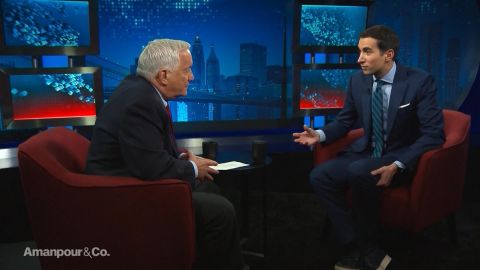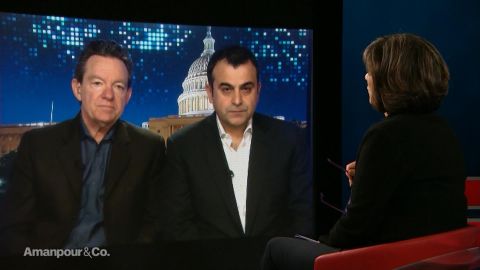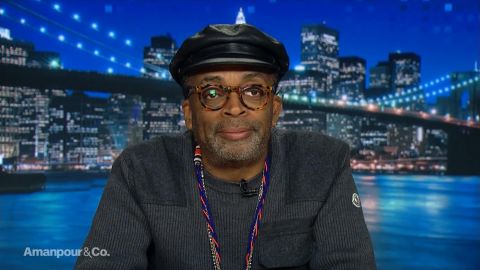Read Transcript EXPAND
CHRISTIANE AMANPOUR: I mean, here you are again, you know, creating this serious message out of comedy.
LEE: Well, this is the first film in history of cinema has done that, you know. One of my favorite filmmakers, Stanley Kubrick, did that with “Dr. Strangelove,” what could be more serious than the annihilation of the human rights — the human race and that the planet going caput. So, the hard thing to do is get the balance, the balance between a serious subject matter and a humor. And so, I have a great editor, his name is Barry Alexander Brown, edited, “Do the Right Thing,” “Malcolm X,” you know, we’ve been working a long time. So, that’s we had to do in the edit room, work on the balance of those two things.
AMANPOUR: Look, you have been dealing with the — I know you have just said — and put me to shame, I know that this is not the first time that humor has been used, but what I want to know from you is, look, you have been working on the dark side of American life for a long, long time and you are, you know, an African-American, a Black man in a society where racism is still very strong. How do you keep that sense of humor? How do you keep telling stories that are accessible and are not just angry?
LEE: Well, I guess that old saying, “You got to smile and keep them crying,” or whatever it, I know I’m getting it wrong. But here’s the thing though, I’m — first of all, I’m a storyteller. That’s what I do. Not all my stories are really based on race but the thing I feel why people connected with this film all over the world is that we very skillfully made a contemporary film that takes place in the past, we’ve connected the with the tumultuous roles we live in today. I also like to add is not just this film and not just talking about United States America, the right — the rise of the right is happening all over the world, it’s not just the United States of America.
AMANPOUR: But your film was made during the Charlottesville protests and you make a very powerful —
LEE: Yes.
AMANPOUR: — powerful tribute to the young woman who was killed during those protests, Heather Heyer. I mean, that —
LEE: Yes.
AMANPOUR: — was really a wallop in the solar plexus to see that after, you know, the credits rolled and after the, you know, somewhat humorous, really interesting film to see that was a real reality check.
LEE: Yes. What that was, it was an example of home-grown American terrorism. That car was a murder weapon and this terrorist drove down that crowded street and murdered her Heather Heyer.
About This Episode EXPAND
Christiane Amanpour talks with Ali Soufan & Lawrence Wright about the Middle East; & director Spike Lee about his film “BlacKkKlansman.” Walter Isaacson speaks with Andrew Ross Sorkin about how credit cards are being used to finance mass shootings. *A bill discussed on this program as having passed through the House of Representatives ended up being delayed in Congress. We apologize for the error.
LEARN MORE


